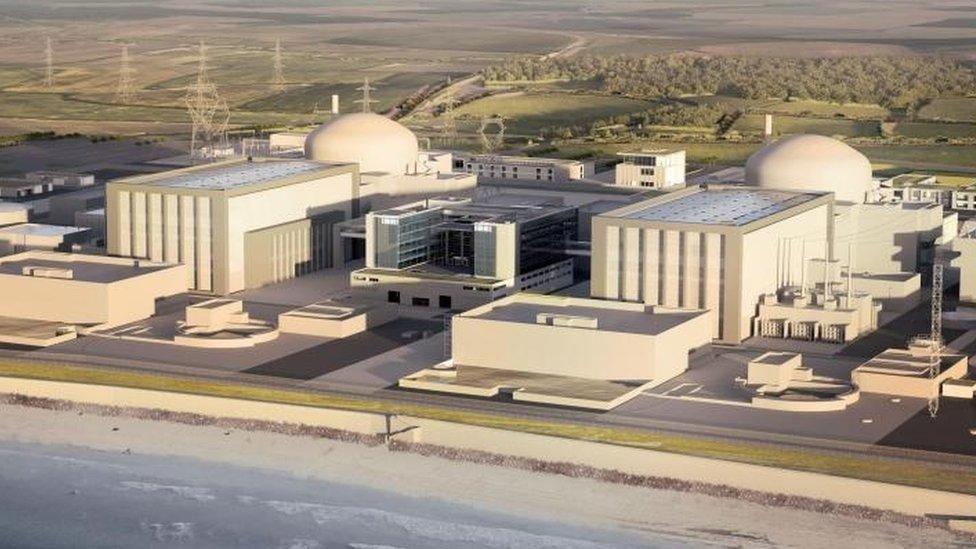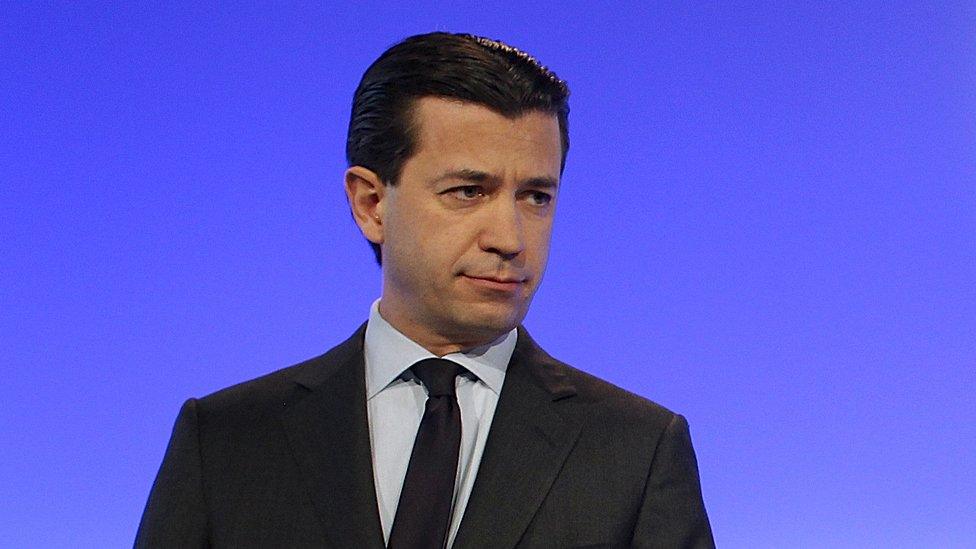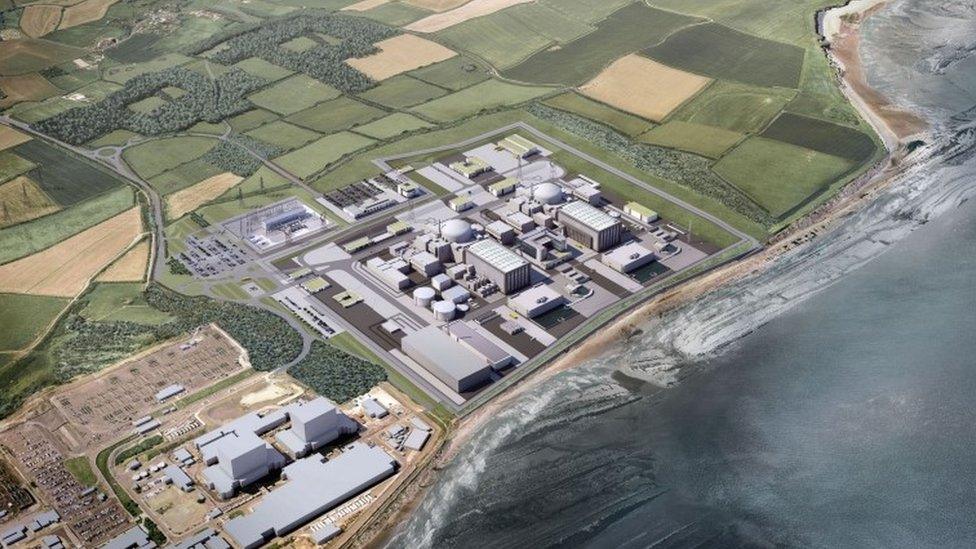Hinkley Point: Why the money man jumped
- Published
- comments

The new plant is planned to be built next to two existing facilities at Hinkley Point in Somerset
The story of Hinkley Point C is a fraught one. It was first mooted in 2008, we are on our third government and fourth secretary of state for energy since then, and the final decision is still yet to be made.
That will fall to the French government, as the 85% shareholder of EDF - the project's owner.
Ministers from both UK and French governments along with the senior management have all joined in a deafening chorus of confidence that it will go ahead, which doesn't seem to succeed in instilling much confidence.
My colleague, BBC science editor David Shukman and I turned our attention to the challenges facing the designers and engineers in delivering this monster of a project.
You can read his blog here to find out how convinced he was that the technical faults and delays that have beset similar reactors in France, Finland and China, which are all over-budget and over-schedule, will not be repeated on this side of the English Channel.
My interest is why none of these arguments, from heads of state down to heads of engineering, were enough to convince the man in charge of the money.
Chief financial officer Thomas Piquemal resigned in March rather than press ahead with a project that he felt might endanger the company.
I'm told that it was the experience of Flamanville in France that eventually eroded his faith in the company's engineers.
He was repeatedly told: just another year, or just another billion, and everything would be fine. But it never was. Currently it is €7bn over budget and six years late. The idea of doing the same thing again and expecting a different outcome was, in his mind, madness.

Thomas Piquemal resigned in March
But, the company argues, it isn't doing the same thing again. In fact, Hinkley Point has already been built - virtually.
A million man-hours have gone into constructing a 3D model which shows every component, from reactor core to the very last screw, already in place.
It has not just been designed on computer, it has been constructed. It is a very impressive digital incarnation of lessons learnt.
In addition, 100 French nuclear engineers have signed a letter to Le Monde today, reinforcing that message.
Now all that remains is for it to be built for real. EDF has already spent £2.4bn of the estimated bill of £18bn.

Artist's impression of Hinkley Point C building proposals
The company says that allows for contingencies of between 10% and 20% for mistakes and delays. That wasn't enough at Flamanville and, although lessons have surely been learnt, it wasn't enough to convince the CFO.
Decision time is approaching and is expected in early May: it promises to be a nerve-wracking few weeks.
French unions hold six seats on the 18-person board and one union has already said it will vote against the deal, while another has said it will go on strike if the deal goes ahead.
That may make life uncomfortable for the French government, but its overwhelming majority shareholding means it has the final word.
The governments of France, the UK and China (state owned contractor CGN has a one third stake) have invested a significant amount of political capital in Hinkley and they remain very confident that the real capital will start to flow in earnest very soon.